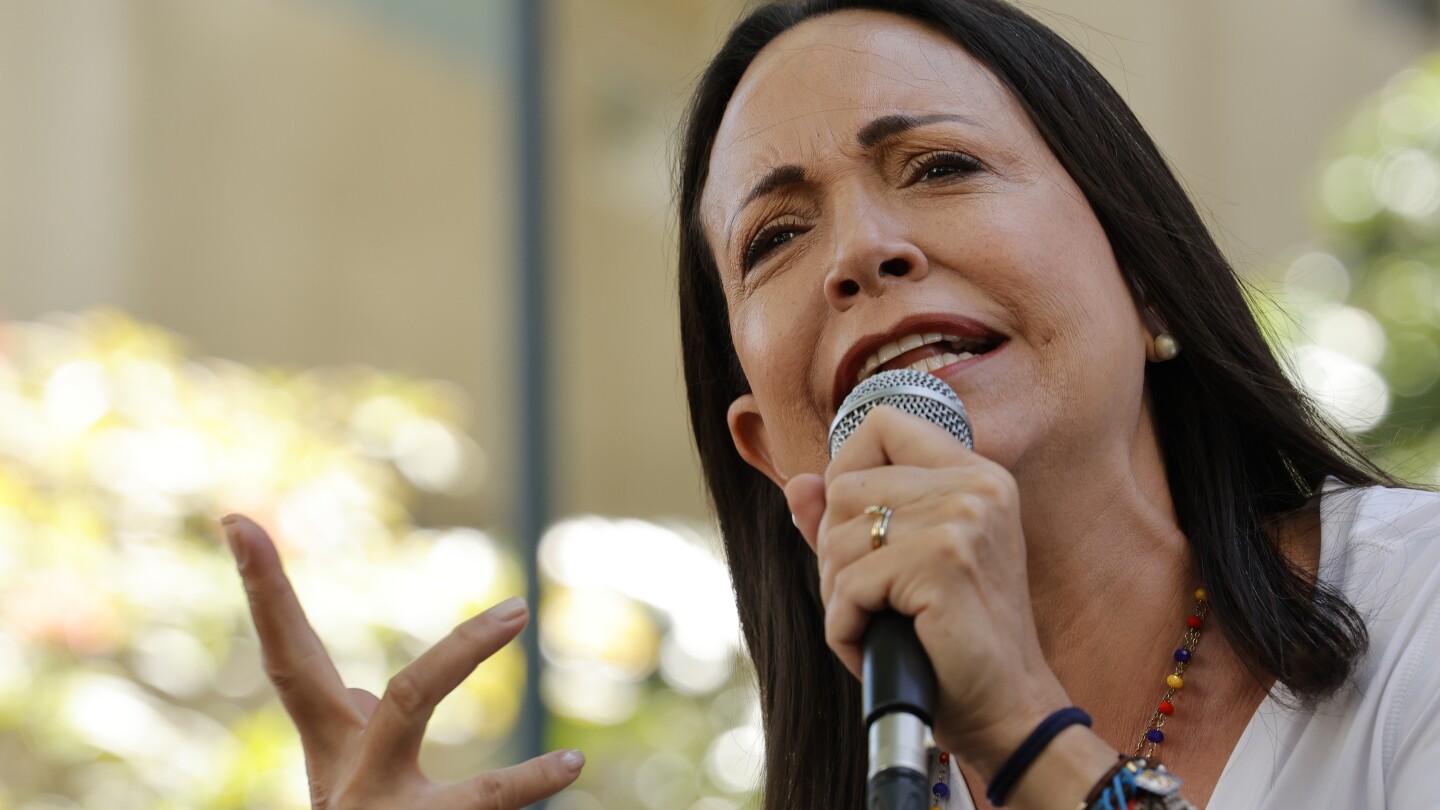CARACAS, Venezuela (AP) — Condemnation of the Venezuelan government for its decision to block the presidential candidacy of an opposition leader strengthened Sunday when the Organization of American States declared the move eliminates any possibility of a free election this year.
The regional body in a statement said the decision announced Friday against María Corina Machado, as well as the recent “prosecution and political imprisonment of opponents,” was evidence the government of President Nicolás Maduro “had no intention of allowing” a clean election. That had been his commitment under a key agreement that earned him some relief from economic sanctions imposed by the United States.
“This dictatorial logic of political persecution and violation of the political rights of citizens — absolutely foreseeable and to be expected given the background of the regime — once again eliminates for Venezuela the possibility of free, fair and transparent elections,” the organization said in a statement.
Machado, a former lawmaker, won a presidential primary held in October by the faction of the opposition backed by the U.S. She secured more than 90% of the vote despite the Venezuelan government announcing a 15-year ban on her running for office just days after she formally entered the race in June.
The longtime government foe was able to participate in the primary because the election was organized by a commission independent of Venezuela’s electoral authorities. Machado insisted throughout the campaign that she never received official notification of the ban and said voters, not ruling-party loyalists, were the rightful decision-makers of her candidacy.
In December, Machado filed a claim with Venezuela’s Supreme Tribunal of Justice arguing the ban was null and void and seeking an injunction to protect her political rights. Instead, the court on Friday upheld the ban, which alleges fraud and tax violations and accuses her of seeking the economic sanctions the U.S. imposed on Venezuela last decade.
The court and the National Electoral Council, the country’s electoral body, are stacked with people affiliated with the ruling party.
Machado’s administrative ban was signed in June by Elvis Amoroso, at the time the nation’s comptroller and under whose tenure state coffers lost billions to corruption schemes. He is now the head of the electoral council.
Friday’s ruling came more than three months after Maduro and the U.S.-backed opposition reached a deal to work on basic conditions for a fair election. The two sides agreed to hold the election in the second half of 2024, invite international electoral observers, and create a process for aspiring presidential candidates to appeal their bans.
The U.S. government on Saturday said it is “reviewing” its sanctions policy on Venezuela based on the court’s decision “and the recent political targeting of democratic opposition candidates and civil society.” The administration of President Joe Biden had threatened to reverse some of the sanctions relief if Maduro’s government failed to lift bans preventing Machado and others from running for office and if it failed to release political prisoners.
The U.S.-backed opposition, known as the Unitary Platform, stunned its allies and adversaries when more than 2.4 million people turned out to vote in the primary despite some organizational challenges and government efforts to discourage participation.
After the vote, Attorney General Tarek William Saab opened criminal investigations against some of the organizers and later issued arrest warrants for some of Machado’s campaign staffers. In addition, a longtime collaborator of Machado, Roberto Abdul, with whom she co-founded a pro-democracy group more than two decades ago, was detained after the primary. His release came only as part of a high-profile prisoner swap between the U.S. and Venezuela.
“The leadership of María Corina Machado is irreplaceable, as is all leadership that arises from the convictions and interests of the people,” the Organization of American States added in its statement Sunday. “It would be pathetic and repulsive if someone tried to take that position, ignoring the indisputable popular assertion that occurred in the country in the primaries.”
Roughly 30 world leaders of Latin America and Spain have also condemned the court’s ruling against Machado.
Over the past two weeks, opposition party offices have been vandalized and staffers of Machado’s campaign have been arrested and denied counsel, according to Machado.
At the same time, Maduro, Saab and Jorge Rodriguez, the leader of the National Assembly and the government’s chief negotiator, have linked opposition supporters and people close to Machado to a number of alleged conspiracies they claim were devised to assassinate the president and his inner circle. They have offered as proof an alleged confession and WhatsApp messages. In practice, court records and often-delayed hearings are not open to the public.

